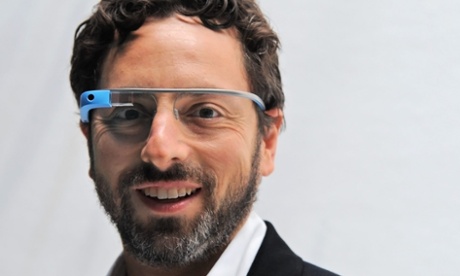
Google Glass may be one of the internet giant’s “moonshot” technologies, but its early adopters have attracted plenty of negative attention in the device’s early days.
There’s even a specific insult – “glassholes” – used by critics of the augmented eyewear, with regular accusations that the device is privacy-flouting, covert-surveillance frippery for the overwhelmingly white, male, Silicon Valley elite.
Now Google is hitting back at the haters, publishing a post on the official Google Glass Google+ page that aims to demolish “The Top 10 Google Glass Myths”.
“Myths can be fun, but they can also be confusing or unsettling. And if spoken enough, they can morph into something that resembles fact,” it claims.
“In its relatively short existence, Glass has seen some myths develop around it. While we’re flattered by the attention, we thought it might make sense to tackle them, just to clear the air.”
he post attacks suggestions that wearing Glass distracts users from the real world – “Big moments in life – concerts, your kid’s performances, an amazing view – shouldn’t be experienced through the screen you’re trying to capture them on” – as well as scotching the common belief that Glass is “always on and recording everything”.
It also stresses that Glass is still a prototype that’s not yet “ready for prime time”; points out that Google has made a deliberate decision not to allow facial recognition apps; explains that it doesn’t cover the wearer’s eye; and suggests that “would-be banners” of the technology should instead look to users to establish their own code of etiquette.
Google is also keen to dispel suggestions that Glass is for the techno-elite. “Our Explorers come from all walks of life. They include parents, firefighters, zookeepers, brewmasters, film students, reporters, and doctors,” claims the post, with a separate myth reserved for accusations that Glass is for the privileged few.
“The current prototype costs $1500 and we realize that is out of the range of many people. But that doesn’t mean the people who have it are wealthy and entitled,” it claims. “In some cases, their work has paid for it. Others have raised money on Kickstarter and Indiegogo. And for some, it’s been a gift.”
The most damaging accusations may be those concerning privacy and surveillance, so it’s no surprise to see Google responding to those as well:
“If a company sought to design a secret spy device, they could do a better job than Glass! Let’s be honest: if someone wants to secretly record you, there are much, much better cameras out there than one you wear conspicuously on your face and that lights up every time you give a voice command, or press a button,” explains the post.
Meanwhile, on privacy, Google draws a comparison to the first cameras in the late 19th century, suggesting that then, as now, claims that a new technology marked “an end to privacy” were overblown.
“Today, there are more cameras than ever before. In ten years there will be even more cameras, with or without Glass,” it says.
“150+ years of cameras and eight years of YouTube are a good indicator of the kinds of photos and videos people capture--from our favorite cat videos to dramatic, perspective-changing looks at environmental destruction, government crackdowns, and everyday human miracles.”
The blog post is unlikely to dampen down the debate around the social cost of a technology like Google Glass, as well as its narrow demographic reach in its early days, and the potential for misuse.
Fans will hail it as a myth-busting masterpiece, and critics will scoff at its claims. And the rest of us, who are still making up our minds? It’s interesting to see Google stepping up its efforts to combat criticism of Glass. The company may well have more to say at its I/O developer conference in June.
No comments:
Post a Comment